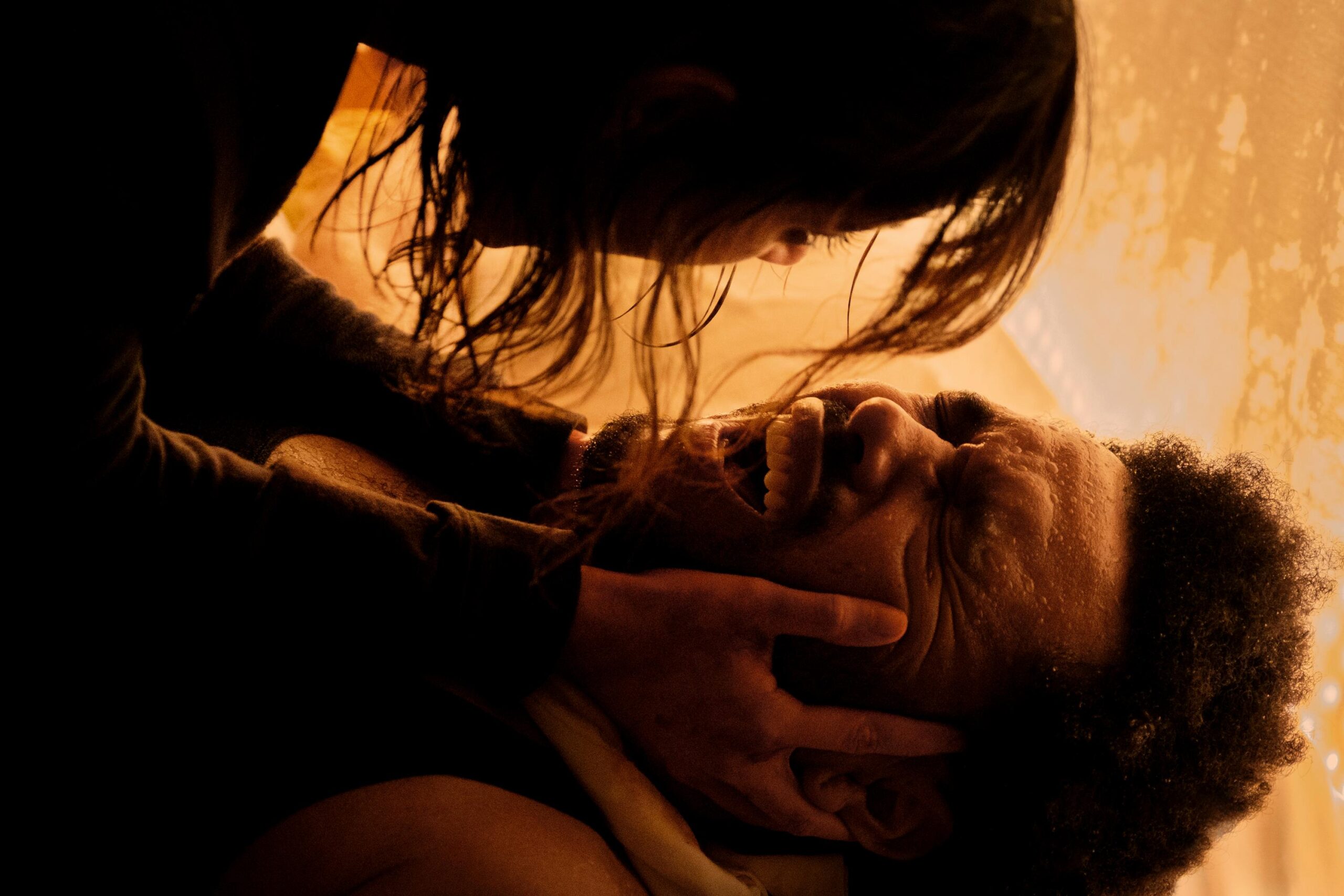Hurry Up Tomorrow
Content Advisory: Rape and Sexual Assault, Abuse, Self-injurious behavior, Excessive or gratuitous violence, Intense Strobing, Mental Breakdown
Musician The Weeknd is pulled into an odyssey by a stranger in Hurry Up Tomorrow. In the aftermath of a break-up, The Weeknd (Abel Tesfaye) is beginning to have vocal problems and insomnia. His manager Lee (Barry Keoghan) is insistent that Abel’s problems are psychological and encourages him to go on stage, where he has a complete vocal breakdown.
In the aftermath of the concert, Abel is approached by Anima (Jenna Ortega), a mysterious woman attending the show. Abel and Anima enjoy the night together, but the tone changes when he tries to brush her off the next day. This results in Anima leading Abel on a journey, unravelling the core of his existence.

Hurry Up Tomorrow Synopsis
Hurry Up Tomorrow is a music thriller directed by Trey Edward Shults (It Comes at Night) and co-written, produced, and starring Abel Tesfaye, better known as The Weeknd. Hurry Up Tomorrow is a companion to The Weeknd’s album of the same name and begins with the musician’s fictionalized version of himself receiving a phone message from a woman (a voiceover cameo by Riley Keough), which affects The Weeknd’s ability to sing. However, The Weeknd’s manager Lee, played by a scene-stealing Barry Keoghan, tries to encourage the musician out of his funk when The Weeknd tries to cancel a show, with disastrous results.
The Weeknd ends up hooking up with Anima, a woman first seen in the film committing arson and going on the run. Abel and Anima find a connection with each other as they spend the night together. However, when The Weeknd tries to excuse the hook-up as just a one-night stand, Anima reveals her true nature to him.
My Thoughts on Hurry Up Tomorrow
Where do I begin with Hurry Up Tomorrow? I guess I should start with Mr. Abel Tesfaye, aka The Weeknd, who in recent years has been trying to make the transition from music into acting, which began with a brief role playing himself in 2019’s Uncut Gems. However, The Weeknd’s more infamous acting role was in the 2023 HBO series The Idol, which he also co-wrote, which was heavily criticized for its misogynistic themes. This is something that can also be levied against Hurry Up Tomorrow, which has a break-up being the source of The Weeknd’s turmoil.
Like The Idol, The Weeknd is a co-writer and producer of Hurry Up Tomorrow. The early scenes of the film come off as a hybrid of concert film and music video. However, it isn’t long until the film devolves into a hyperkinetic fury of strobic editing, which was overstimulating enough for me to consider leaving. There is also The Weeknd’s complete lack of any real acting skills, with both Barry Keoghan and Jenna Ortega having to do the heavy lifting.
As Barry Keoghan’s Lee become less of a factor as the film goes on, I’m going to focus more on Jenna Ortega’s Anima. I’ll begin by noting a somewhat concerning casting trend in both Hurry Up Tomorrow and The Idol. This film features a 35-year-old Abel Tesfaye romancing a 22-year-old Jenna Ortega, which mirrors how he was cast against a then-24-year-old Lily-Rose Depp in The Idol. This casting says a lot about The Weeknd’s taste in women, which even plays somewhat into the plot.
There is one moment in Hurry Up Tomorrow, where Anima dissects the themes of The Weeknd’s songs, most notably “Blinding Lights,” accompanied by extremely enthusiastic lip syncing and dancing. The connecting theme of many of these songs is that Abel Tesfaye is often writing about toxic relationships that come to an end. However, without delving too heavily into spoilers, the question becomes whether The Weeknd is the toxic one. That one scene was arguably the most engaging moment in Hurry Up Tomorrow, thanks in no small part to Jenna Ortega’s commitment.
However, as a whole, Hurry Up Tomorrow is an extreme example of self-indulgence and ultimately a 1h45m commercial for The Weeknd’s new album. Abel Tesfaye’s lack of acting skills results in many unintentionally humorous moments in the film, such as an over-the-top reaction he gives in one scene, which was meant to be a serious moment. In a way, this almost makes Hurry Up Tomorrow like The Room of films made by pretentious pop stars, though I doubt this is a film that will have a cult following hosting midnight screenings anytime soon.

